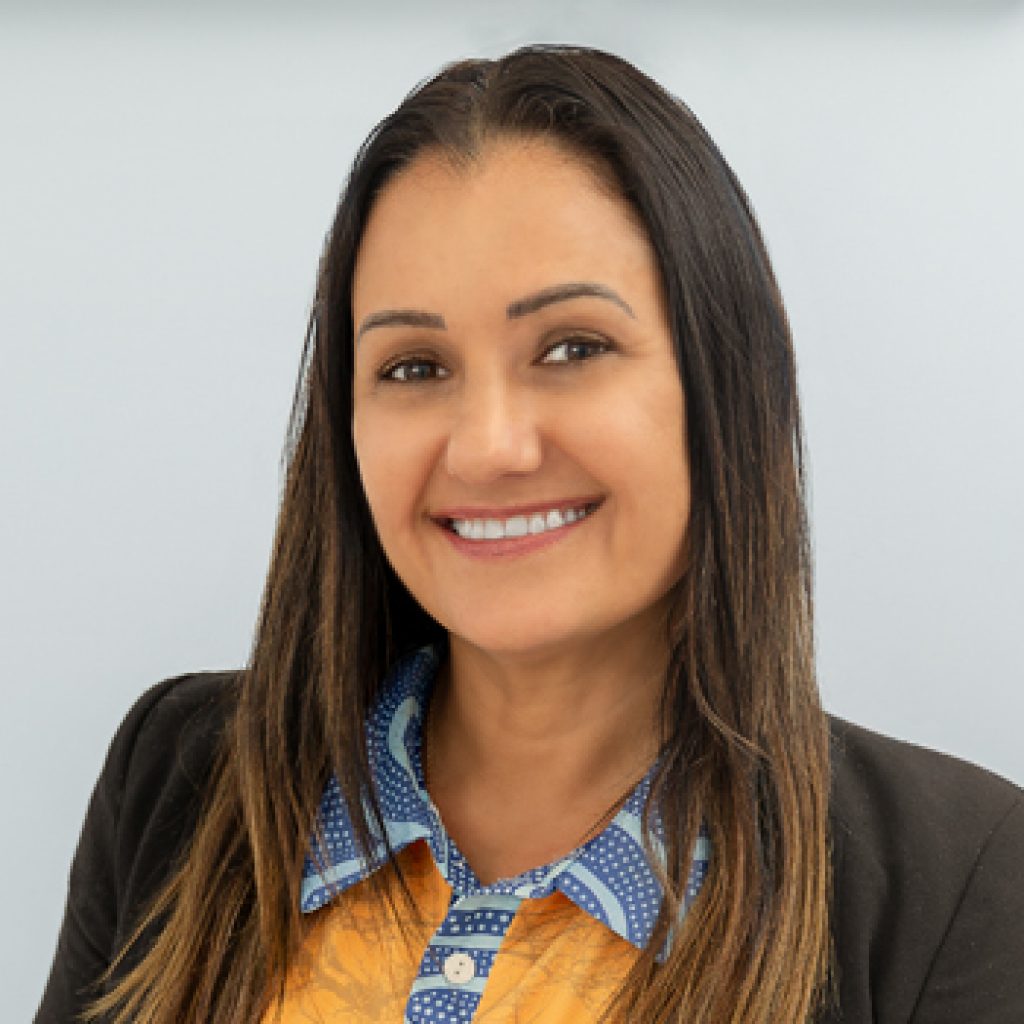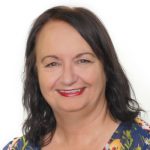
We need to ensure that young women believe in themselves and pass on their strength to others.
My family tribes are Wakka Wakka and Wulli Wulli. I’m a proud Wakka Wakka woman from my Grandmother’s side, who are Laws and Clancys and my Grandfather’s side the Dodd family who are from the Wulli Wulli tribe.
I was born in Brisbane, but my mother was born in Eidsvold. She came to Brisbane as a young woman looking for employment opportunities with some of her family.
Culture and heritage are very important to me. To me it means connection to kin, family, extended family, as well as a sense of identity and belonging.
It’s actually a very beautiful feeling knowing your extended family groups and where we all come from.
We recently had our Consent Determination for our Wulli Wulli Native Title Claim. It was an amazing feeling to be present at the ceremony and feel the connection to our Country which would not of been possible without the knowledge and dedication of my Elders and Apical Ancestors who linked our heritage back thousands and thousands of years. It’s just a really good feeling to be connected to my family. I love it.
It’s beautiful we are such a large family and we can really draw knowledge, strength and support from each other.

Tell us about your work in the housing and homelessness sector
I’ve been in the sector for over a decade and I can’t see myself going into another field of employment.
They say that some people in our sector can burn out in a few years. To be honest, I’ve had times when I’ve struggled too, but with the support of my CEO Paul Tommassini as well as ongoing professional support, I’ve been able to work through things that may have worn me down.
Even support in my personal life was key to me being able to manage these complex issues that our younger people need help with.
I originally got into the sector through a part-time role with Goodna Youth Service working with Lewis Street Shelter working with Aboriginal and Torres Strait Islander males aged 16-21, which led me to then work with Ipswich Independent Youth Service.
I’ve worked in many different roles in this organisation, and seen many changes; including a name change to inCommunity Inc because we not only provide crisis accommodation, we provide mobile support, SPiN housing, and our tenancy skills institute.
As our service expanded, I went on to become a Senior Case Manager for our mobile support program. This role was great as I had the opportunity to support a small team and I’m currently Acting Program Manager for the organisation.
One thing about the community services sector, and particularly working with young people, is that the people we work with are very resilient regardless of the obstacles that they’ve had to overcome. Even if these young people have faced hardships and haven’t had the greatest upbringing or childhood, they can be very resilient and want a better life for themselves.
I love seeing young people get on a good path and stay on that path. I really enjoy being a part of that process and helping empower them and really focus on their strengths. When you see a young person who’s got strengths that they may not even see in themselves, to be able to draw that out of them and make them aware of that is rewarding.
I love seeing young people get on a good path and stay on that path. I really enjoy being a part of that process and helping empower them and really focus on their strengths.
When you see a young person who’s got strengths that they may not even see in themselves, to be able to draw that out of them and make them aware of that is rewarding.
What does this year’s NAIDOC theme mean to you?
Every year NAIDOC Week is important to me, but this year really hit home for me because of the theme, and in particular, being raised by a single Mum and because of her I can.
There have been key women in my life, but first and foremost, I want to acknowledge my Mother. As a single Mother, she has been my rock and never wavered from her role of being there for me. I have three daughters, and Mum’s exactly the same with my children as she was with me growing up.
My Aunties were also a big influence and were always there to help raise me and support Mum throughout my childhood.
Unfortunately I didn’t get to meet my Grandmother as she passed away when my Mum was young, but I’ve heard so many amazing stories about her and I can only aspire to be half the woman she was.
So my Mum and Aunties helped mould me, and I’ve taken a little bit from each of them. Ultimately, I took the key things that I really loved about them and tried to incorporate that into my role as a woman and as a Mother. My Mum really passed on a strong work ethic and taught me that Motherhood is not a sometimes roles, it’s an everyday job.
What does NAIDOC Week mean to you?
It’s very important. It’s a time to celebrate that we have survived and that our culture is still strong. It’s a time to reflect on past hurts and past injustices and everything our prior generations have gone through. It’s a chance to recognise the obstacles and injustices and hurt, that we are still here, still a proud people and we aren’t going anywhere.
We are a loving people and I find NAIDOC very important because it’s a time for me to celebrate with my children, my mob, and also with my clients. At inCommunity Inc. we’re not an Indigenous specified service, but we certainly work with Aboriginal and Torres Strait Islander youth. In my role, it’s rewarding to help them obtain safe housing and helping them to reconnect with their mob. NAIDOC Week is always a highlight of the year as we get to celebrate our Aboriginal and Torres Strait Islander culture and history.
What message do you have for this NAIDOC Week?
We all know a woman, whether it was our Mother, Grandmother, Aunty, or a friend; that were a key part of our childhood. We should make sure that we pass on their beautiful traits and share that with other young ones, especially those growing up who need a bit of extra support. We need to ensure that young people believe in themselves and pass on their strength to others.


